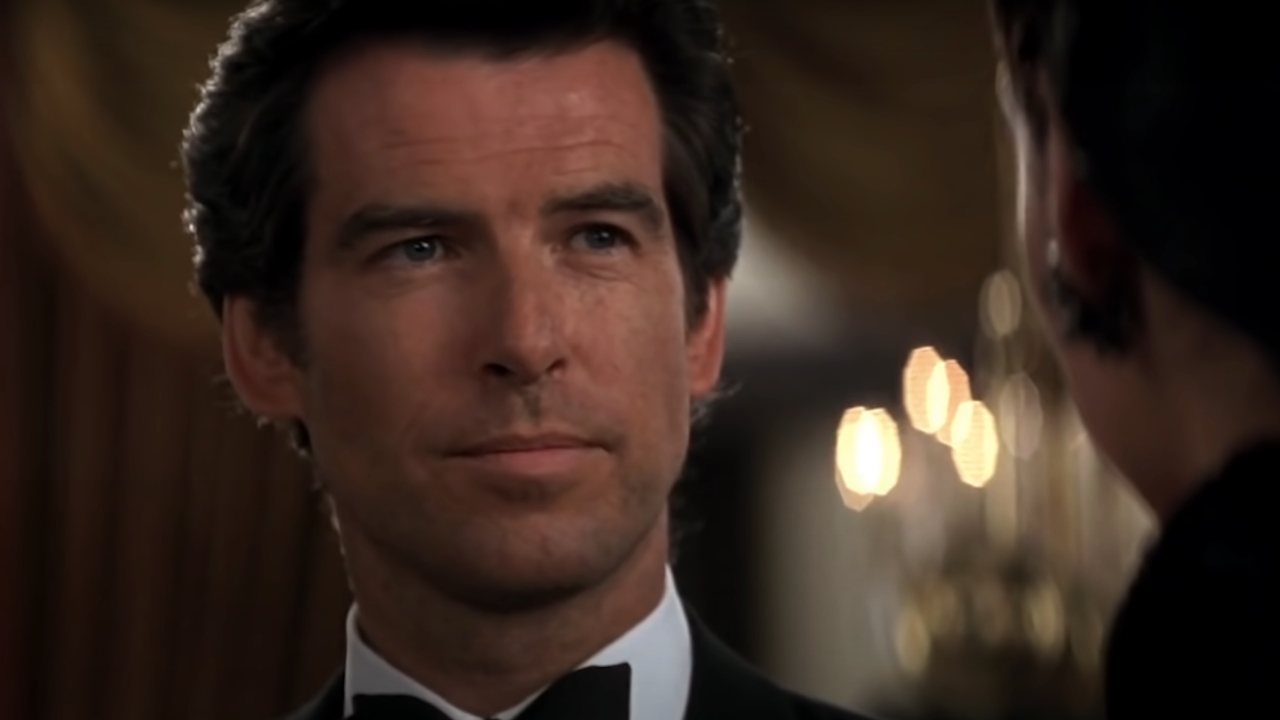Netflix's Mindhunter: How Accurate Is The Show's Depictions Of Various Serial Killers?
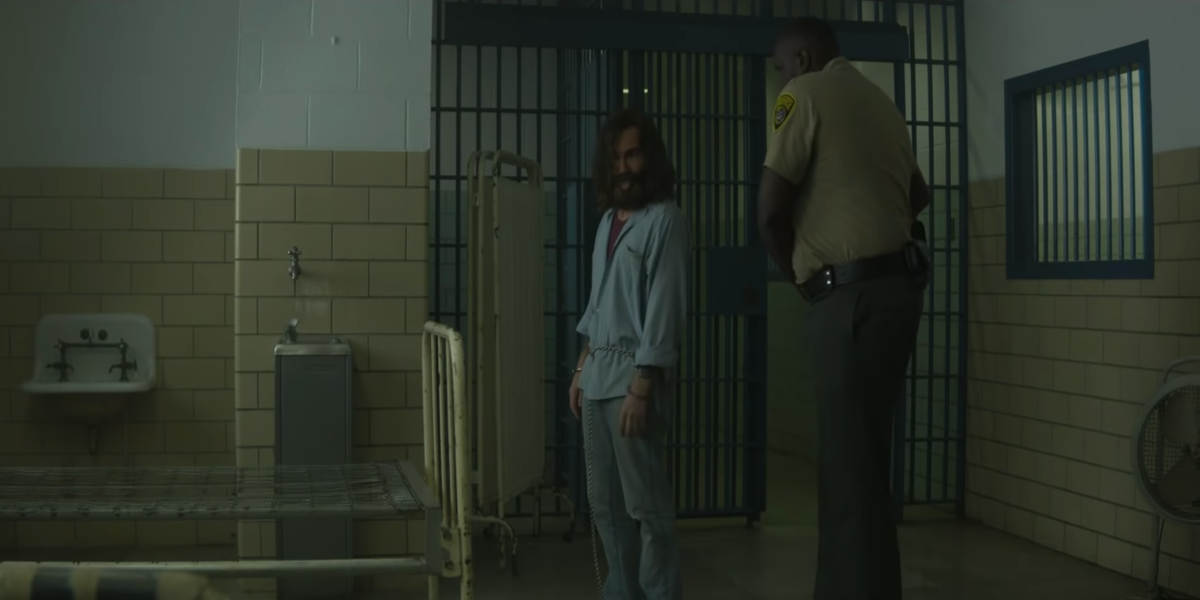
The Netflix true crime series Mindhunter features a who’s who of American serial killers and mass murderers throughout its first two seasons, but some viewers might question whether or not the portrayals are based on fact or just television magic.
Over the course of the first 19 episodes of the series, FBI agents Holden Ford and Bill Tench interview more than a dozen convicted serial killers as they compile information to build psychological profiles of murderers to help catch similar criminals in the future. And while each of the interactions with the serial killers are interesting in their own right, let's take a look at some of most prominently featured killers of the bunch.
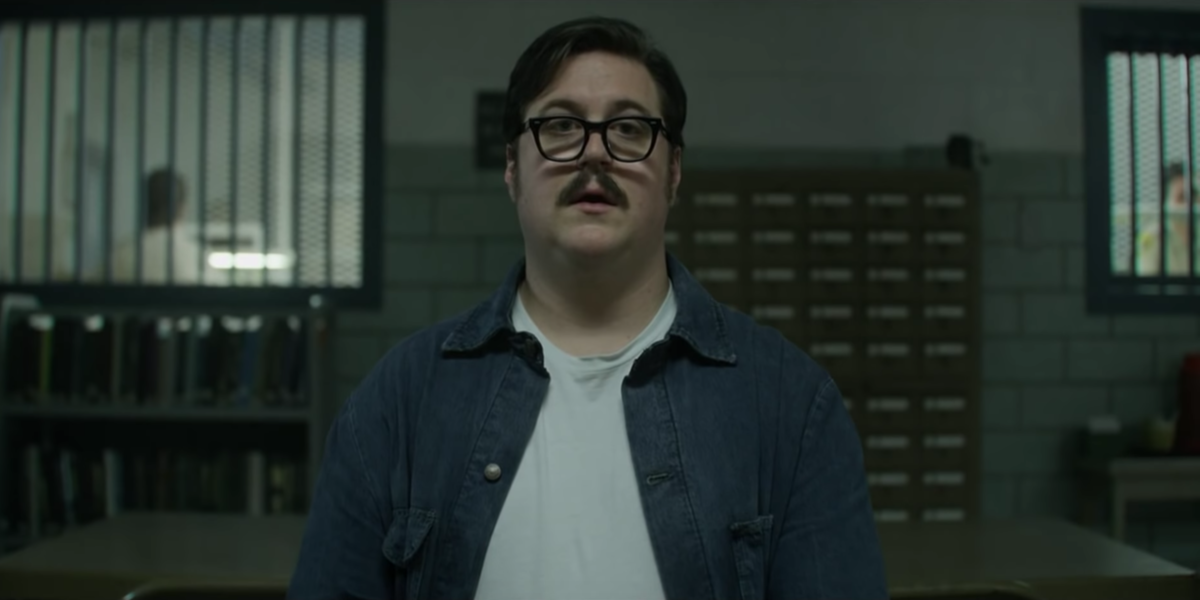
Edmund Kemper (Cameron Britton)
Edmund Kemper, known as “The Co-Ed Killer,” was responsible for 10 murders, starting with the brutal slayings of his grandparents when he was only 15 years old. He was diagnosed as a paranoid schizophrenic and sent to a mental institution, but was paroled six years later after convincing doctors he had been rehabilitated. It didn’t take long for Kemper to embark upon a killing spree where he focused on young female hitchhikers who he would kill before decapitating, dismembering, and violating their corpses.
Portrayed by Cameron Britton, Kemper is the first incarcerated killer the FBI agents interview in the first season of the series, and from the very moment we set eyes on the towering serial killer, we’re captivated by his size (6’9”), his charm, and his unsettling creepiness. While the show did accurately portray Kemper's appearance and demeanor, one aspect of the portrayal did not happen in real life.
According to an interview with Digital Spy, John Douglas, who the Holden Ford character is based on, revealed that Kemper would have never grabbed him the way the character grabbed Ford at the end of the first season. In the interview, Groff admitted that he was hospitalized due to the stress of the job, but that it was not brought on by any physical interaction with Kemper.
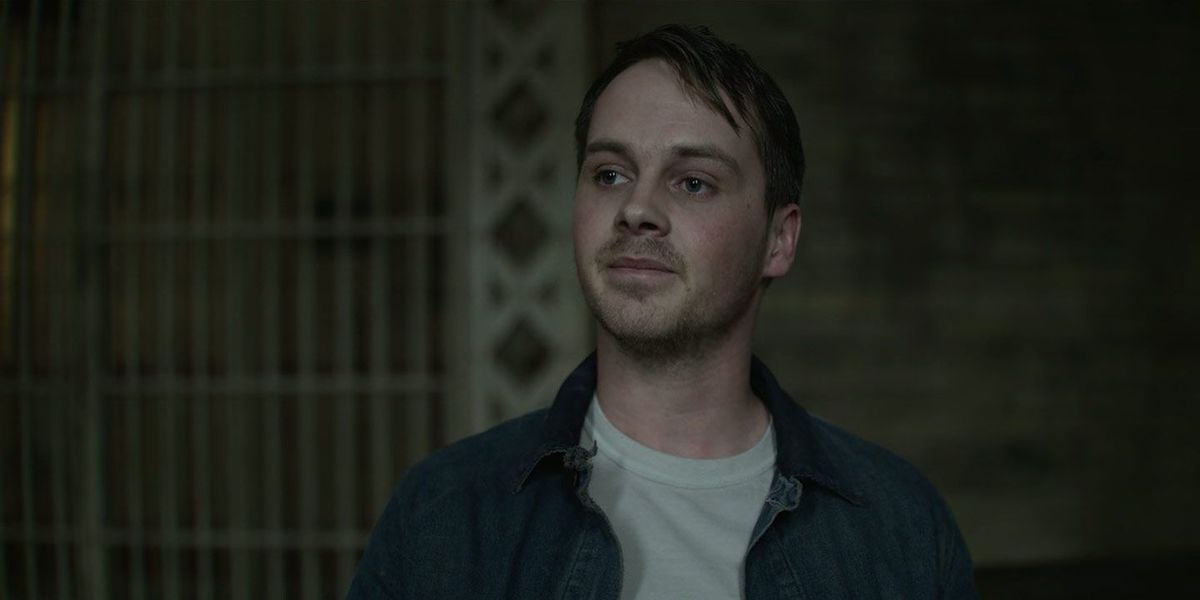
Montie Rissell (Sam Strike)
Montie Rissell was a juvenile rapist who took his fear and hatred of women and used it as motivation to rape 12 women, five of which he murdered in cold blood. It all started when he raped his first victim when he was still 14 years old. Between 1973 and 1974, Rissell would go on to rape and murder five women.
Authorities initially had a hard time pinning any of the crimes on Rissell as he was incarcerated in a mental institution. It wasn't until later that cops discovered that Rissell was breaking out of the facility, committing the crimes, and then sneaking back into his cell. Rissell was eventually apprehended and sentenced to five consecutive life sentences.
Your Daily Blend of Entertainment News
Sam Strike plays Rissell in the first season of Mindhunter, and just like Britton’s portrayal of Kemper earlier in the season, the actor looks strikingly similar to the killer is portraying. The anger, immaturity, and impulsive nature of Rissell can all be seen in Strike’s short portrayal. In the show, Rissell is seen as being able to convince people of things they want to hear, which is something Douglas picked up on during his actual interviews with the killer, saying, "He was able to convince the psychiatrist he was making excellent progress while he was actually killing human beings."
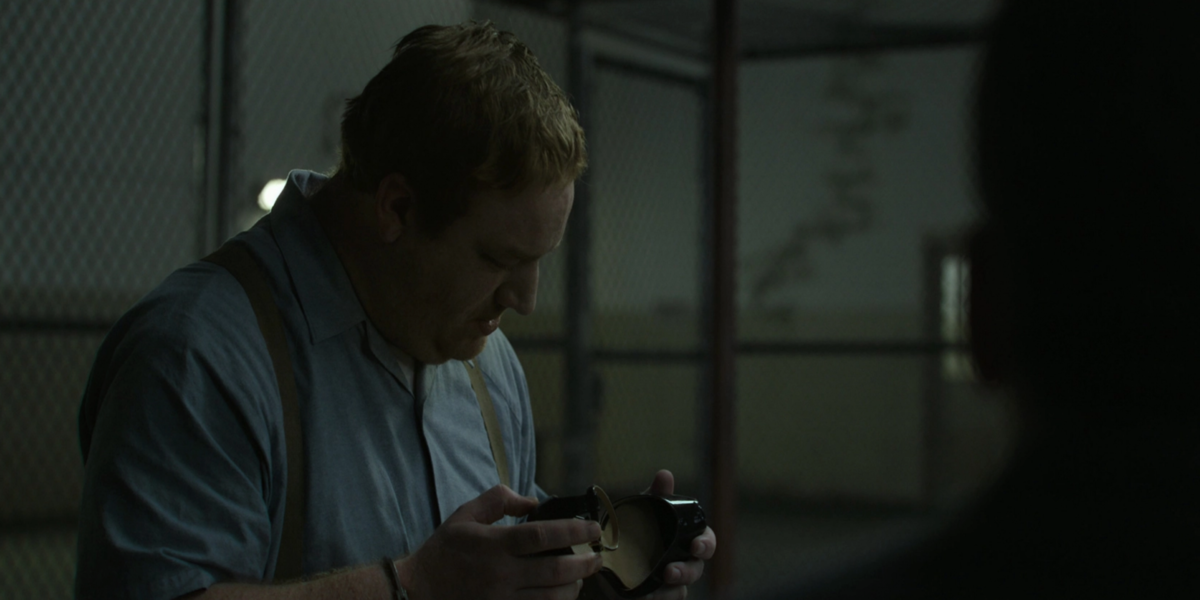
Jerry Brudos (Happy Anderson)
Jerry Brudos, commonly referred to as “The Lust Killer” or “The Shoe Fetish Slayer” was responsible for at least four murders in Oregon between 1968 and 1969. His fetish for women’s shoes started at an early age and would only get worse from there. Not only would Brudos brutally murder his victims, but he would also violate their corpses and then take their shoes as a trophy, hence the nickname.
Brudos would initially admit to the crimes, but would later deny any involvement in the strangling or raping of his victims.
Happy Anderson portrays Brudos in a scene-stealing performance during one of the many interviews conducted through the first season of Mindhunter. In this unforgettable scene, Brudos is given a pair of women’s shoes in order obtain information about his childhood. During the interview, Brudos reveals that his mother once made him watch as she burned a pile of stilettos to punish him. This was based on a true event where Brudos' mother found a pair of shoes in her son's closet that he had found at the dump, and burned the pair and severely punished the young boy.
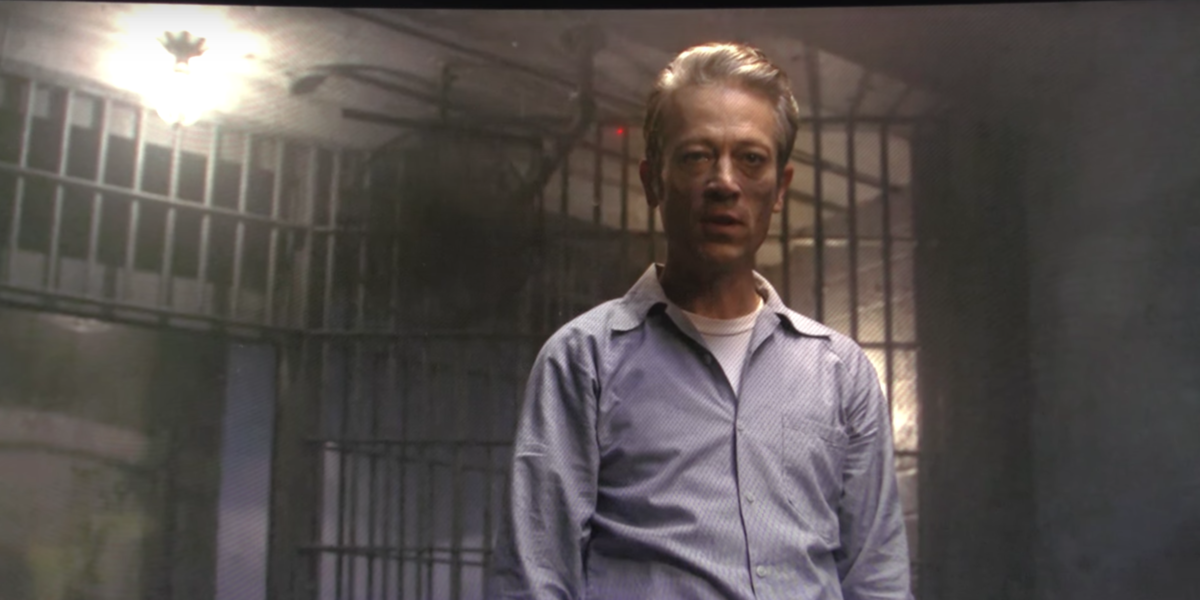
Richard Speck (Jack Erdie)
While most of the criminals featured in both seasons of Mindhunter fall into the serial killer camp, Richard Speck was a spree killer. On the night of July 13 into the early morning hours of July 14, 1966, Speck tortured, raped, and murdered eight student nurses from the South Chicago Community Hospital. Speck was later convicted of the murders and was sentenced to death, but the sentence was overturned to a life sentenced due to issues with jury selection.
Speck is portrayed by Jack Erdie in the first season of the series where he goes into detail about the crimes during his interview. At the conclusion of said interview, Speck tells the FBI agents that he killed the women simply because “it just wasn’t their night,” a real quote from Speck.
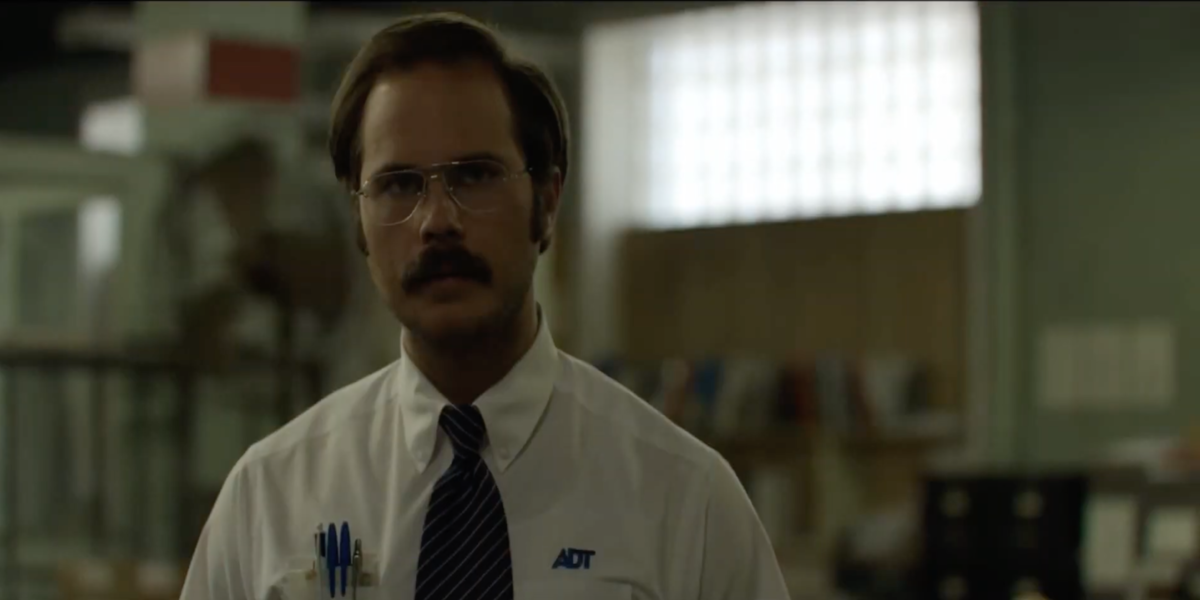
Denis Rader (Sonny Vailcenti)
Denis Rader, better known as The BTK Killer, was as organized as he was brutal in the binding, torture, and murder of his 10 victims in Wichita, Kansas between 1974 and 1991. Rader gained notoriety due to the nature of his crimes as well as the methods he used to taunt police and local media through highly-descriptive letters going into great detail about his actions.
The BTK Killer is probably the most seen serial killer throughout both seasons of Mindhunter, though we don’t know much about the man or his crimes until the first few episodes of the second season. Throughout the first season, Rader, who is being portrayed by Sonny Vailcentit, is seen walking through multiple homes setting up security systems for ADT, a job the real killer held during the time of the murders. In real life, Rader installed security systems for residents who were scared by his crimes, never knowing that the killer was in their home.
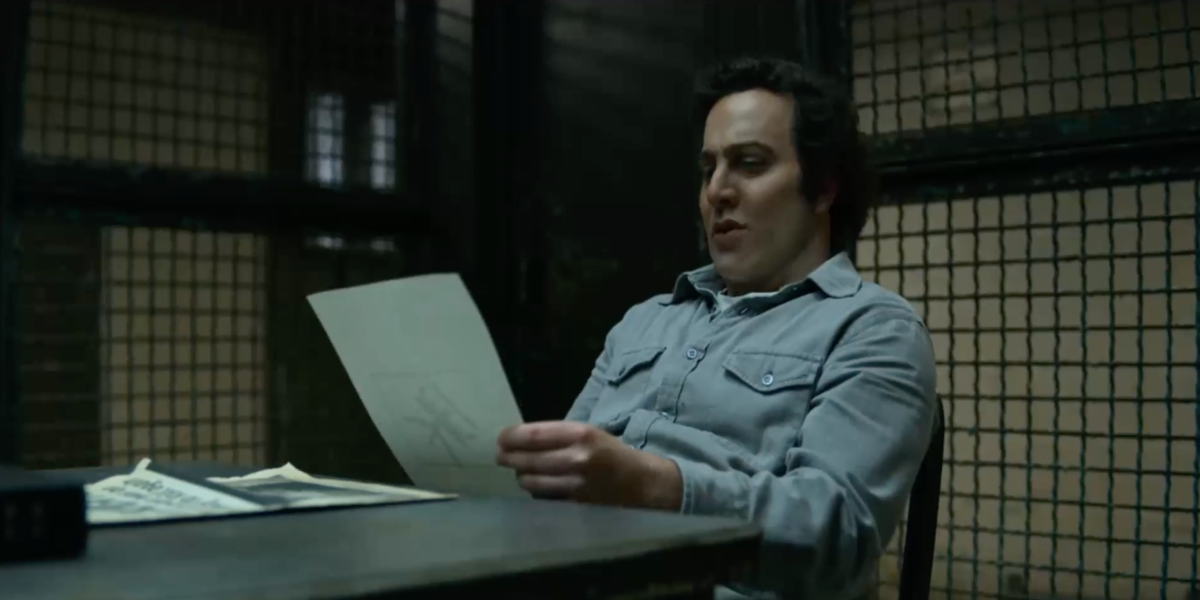
David Berkowitz (Oliver Cooper)
David Berkowitz, most notably known as “Son of Sam” is responsible for six murders and seven additional attacks between July 29, 1976, and July 31, 1977, in and around New York City. The Son of Sam murders and subsequent manhunt by the NYPD achieved worldwide notoriety, and that craze only continued after he was apprehended. During interviews with police, Berkowitz initially claimed to have been obeying the orders of a demon that had possessed his neighbor’s dog.
Berkowitz was eventually found fit to stand trial and was convicted of the six murders as well as a number of unsolved arson cases in the New York City area. He was sentenced to six life sentences in prison.
Son of Sam is portrayed by Oliver Cooper in the second season of Mindhunter, who looks strikingly similar to Berkowitz, to the point where it’s hard to tell the two apart. But while the show got the appearance down, there is one aspect of the Son of Sam interview scene that is the stuff of fiction. During the interview, the FBI agents ask Berkowitz to help profile the BTK Killer, but it's not actually known if the agents ever asked the real Berkowitz for any assistance with the Kansas serial killer in real life.
Douglas did spend hours interviewing Berkowitz while the serial killer was in prison, and even got him to admit that the whole "dog made me do it" defense was nothing more than a hoax.
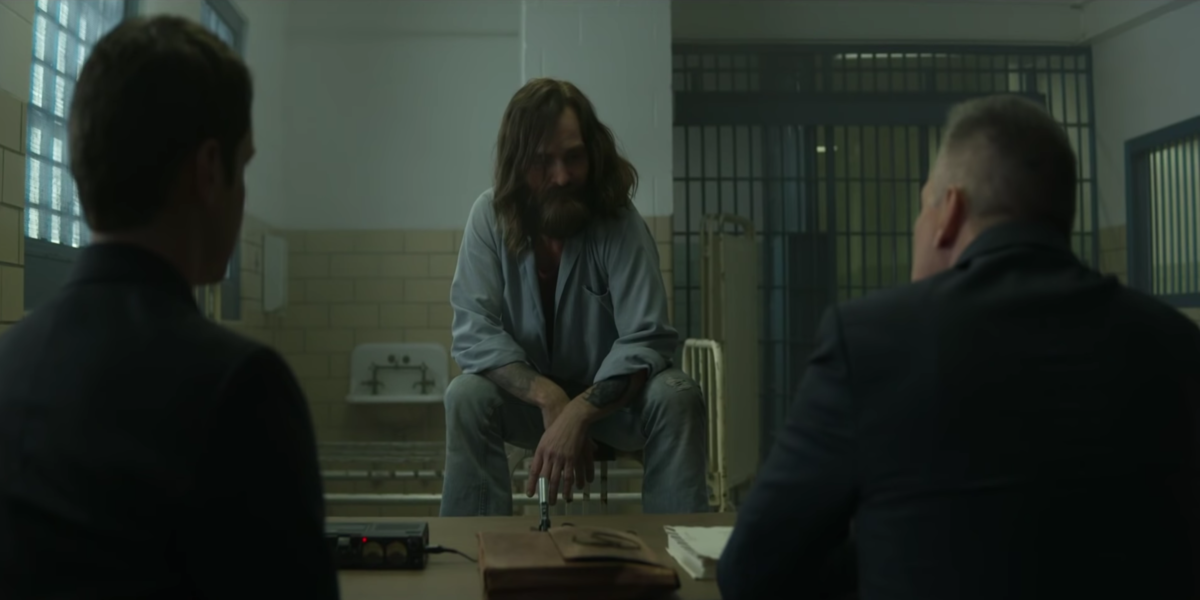
Charles Manson (Damon Herriman)
Charles Manson is without a doubt the most notable convicted murdered to show up in either season of Mindhunter. Although the real Charles Manson never actually killed anyone, instead having the members of the “family” do it for him, Manson has become a cultural icon in the 50 years following the vicious and ritualistic murders of Sharon Tate and several other people in around the Los Angeles in the summer of 1969.
The myth and intrigue surrounding Manson in the years following the murders is also seen throughout both seasons of Mindhunter, paying off in one of the most iconic scenes in the show’s history when Holden finally gets the opportunity to conduct an interview with the cult leader. Manson is portrayed by Damon Herriman (who also showed up as Manson in Quentin Tarantino's Once Upon A Time In Hollywood), who brings the cult leader’s small frame and over-the-top personality to the television screen.
During that interview, Manson sits atop a table in the room in an attempt to seem larger than life and intimate Holden, which is actually something he was known to do in real interviews throughout his incarceration. At the conclusion of the interview, Holden gives Manson his sunglasses only for a guard to return them a little later on after Manson was bragging that he stole them from the FBI agent.
That whole scene might seem like nothing more than pumped up drama for a television series, but in an interview with Fox News, Douglas recalled that Manson in fact asked for his sunglasses, stating he needed them because "everyone knows I’m talking to the FBI right now and I got to give the impression back to them that I took something belonging to you."
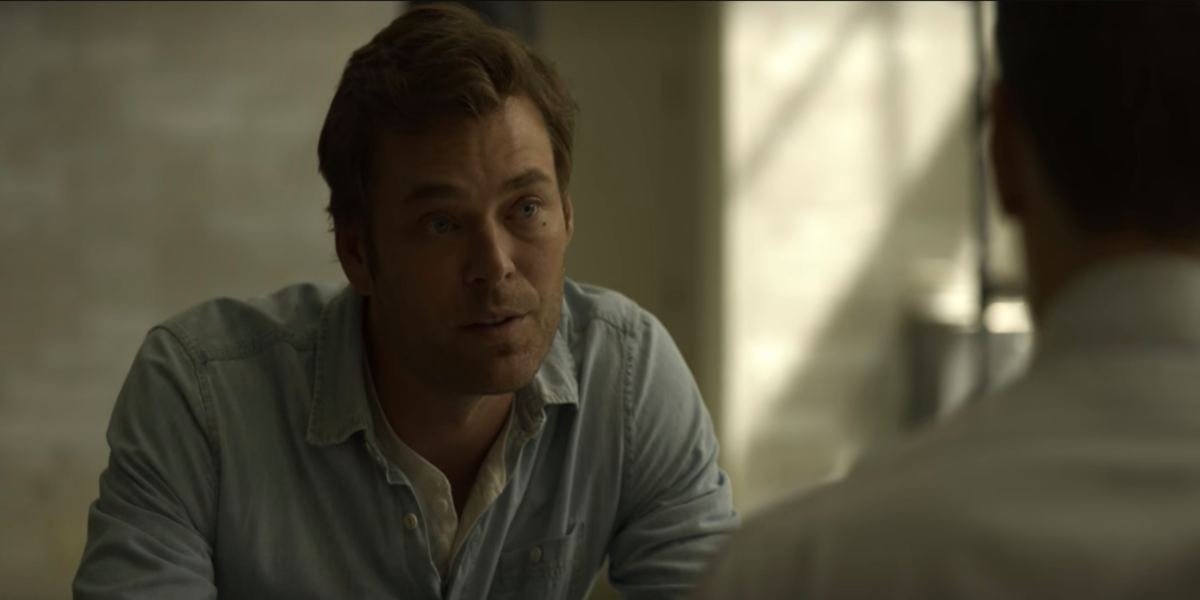
Charles “Tex” Watson (Christopher Backus)
Charles “Tex” Watson was a central member of the “Manson Family” and was at the center of the August 1969 murders in Los Angeles. Watson was found guilty of the murders and sentenced to death, but the sentence was commuted to life in prison after California banned the death penalty.
Watson appears in the same episode of Mindhuter as Manson, though Holden is able to get more info out of the follower. On the advice of Ed Kemper to talk to Watson, portrayed by Christopher Backus, instead of Manson, Holden went off to interview one of the members of the Manson family. By that point, Watson had found religion and was more than willing to open up about his crimes and what led him on that path. The real Watson converted to Christianity while incarcerated in 1975, and even became an ordained minister in 1981.
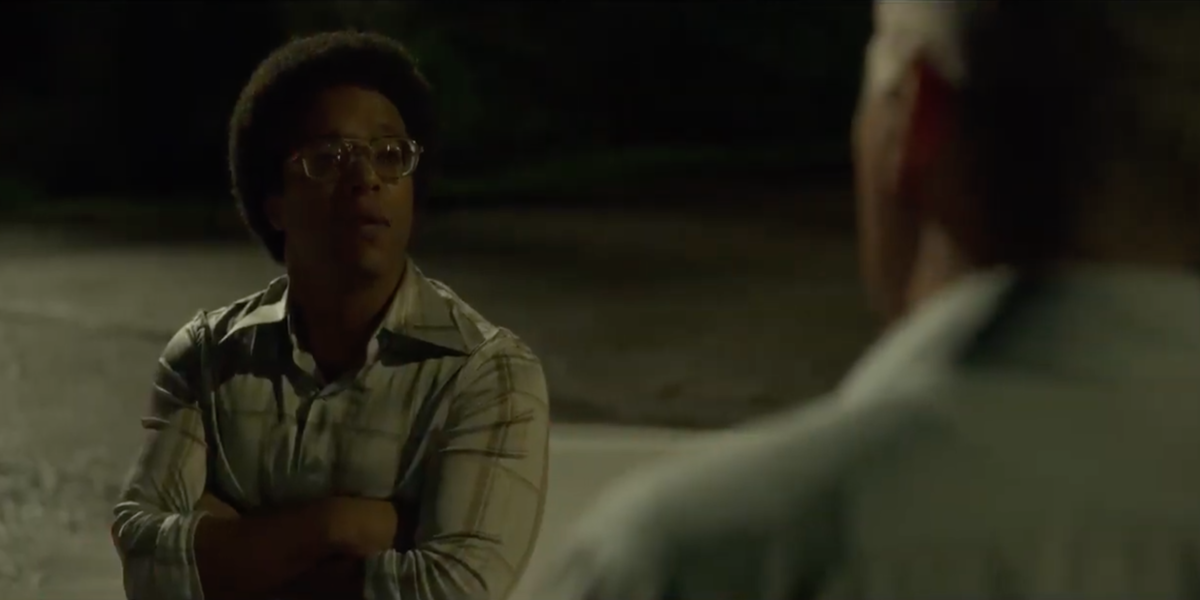
Wayne Williams (Christopher Livingston)
Wayne Williams is long believed to be the perpetrator behind the Atlanta Child Murders that occurred between 1979 and 1981 in and around the Atlanta, Georgia, metropolitan area, but he was only ever tried and convicted of the murder of two adult males. Though he was never charged or brought to trial in the Child Murders, Williams was the prime suspect in at least 23 of the 30 murders that took place during that space of time.
Portrayed by Christopher Livingston in the second season of Mindhunter, Williams is the central antagonist and suspect throughout much of the second half of the season. Livingston’s portrayal of the suspected child murderer is spot on and eerily similar to the man he is playing.
Like the real case in which the arc was based on, Holden, Tench, the FBI, and Atlanta police were not able to arrest or charge Williams in connection with the murders, despite having a great deal of evidence.
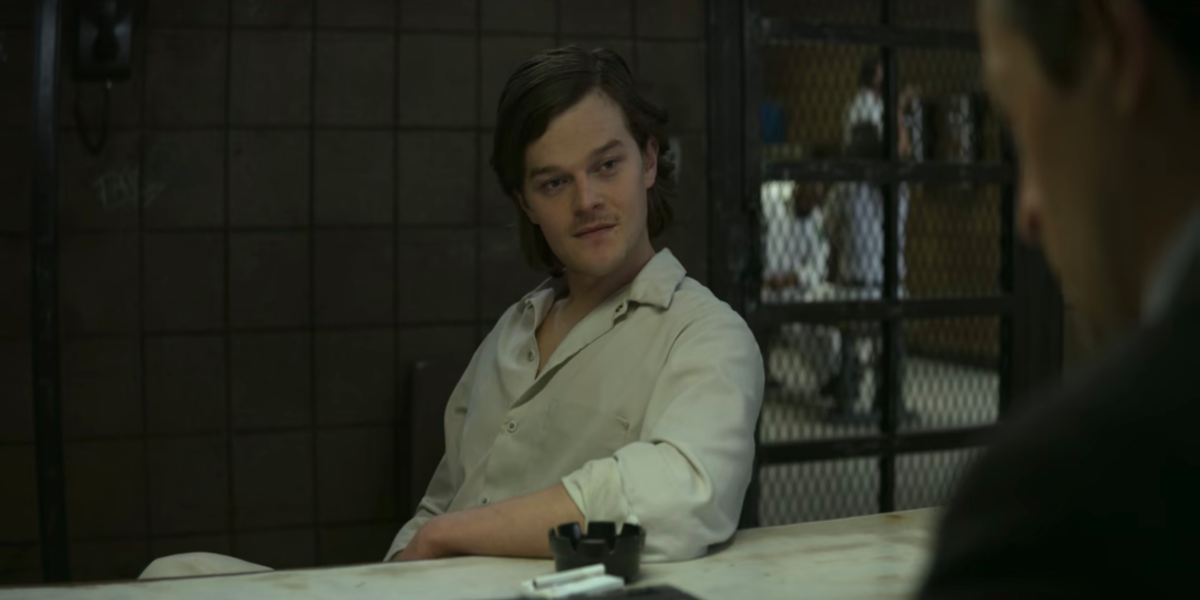
Elmer Wayne Henley, Jr. (Robert Aramayo)
Elmer Wayne Henley, Jr. is a convicted serial killer who is mostly known for his role in the Houston Mass Murders between 1970 and 1973, where Henley assisted Dean Corll in the abduction, torture, rape, and murder of at least 28 teenage boys and young men. Henley eventually turned the table on Corll and shot him to death in August 1973. Henley was later apprehended and convicted of seven murders (including Corll’s), and was sentenced six consecutive prison terms of 99 years.
Henley is portrayed by Rober Aramayo in a brief interrogation scene partway through the second season of Mindhunter, where he is questioned about his involvement in the Houston Mass Murders as well as his relationship with Corrl. In the show, Henley eventually opens up about the abuse he received from his father and how it led him to Corrl, which was very much the case for the real Henley, who was physically assaulted by his father at a young age.
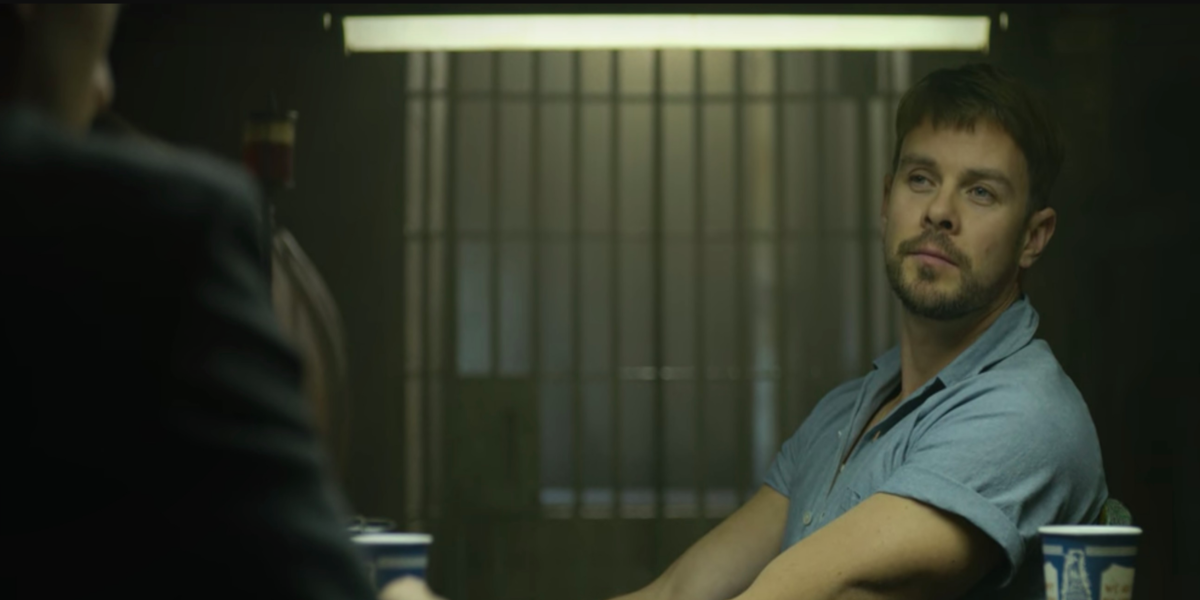
Paul Bateson (Morgan Kelly)
Paul Bateson is an American murderer who was convicted in the 1979 slaying of film industry journalist Addison Verrill, and was sentenced to at least 20 years in prison. Bateson was long believed to be the person behind the “Bag Murders,” which involved the murders of multiple gay men in Manhattan’s leather community.
By the time Bateson (portrayed by Morgan Kelly) is interviewed in the second season of Mindhunter, he has already been convicted of Verrill’s murder, but authorities are trying to pin the “Bag Murders” on him as well. Authorities actually tried to connect Bateson to the murders, but failed to obtain enough evidence to bring charges against him.
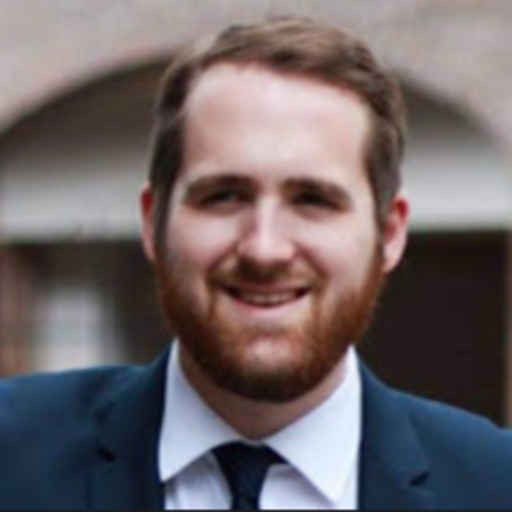
Philip grew up in Louisiana (not New Orleans) before moving to St. Louis after graduating from Louisiana State University-Shreveport. When he's not writing about movies or television, Philip can be found being chased by his three kids, telling his dogs to stop barking at the mailman, or chatting about professional wrestling to his wife. Writing gigs with school newspapers, multiple daily newspapers, and other varied job experiences led him to this point where he actually gets to write about movies, shows, wrestling, and documentaries (which is a huge win in his eyes). If the stars properly align, he will talk about For Love Of The Game being the best baseball movie of all time.
